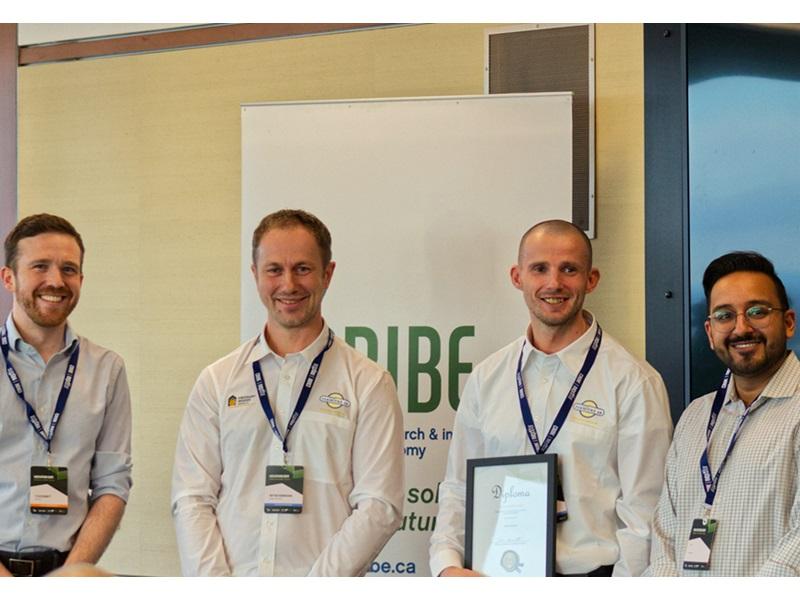
Despite years of experience serving senior buyers and sellers, Toronto Realtor Barry Lebow felt he was not getting proper recognition as an expert in the sector.
“I spent $2,000 a month a few years ago for 12 months, and I had an SEO company who told me, ‘Barry in Google searches, agents who specialize in seniors are on about page 10,’” said Lebow, who is broker of record with RE/MAX Realtron Robert Kroll Realty, Brokerage.
So Lebow embarked upon a “selfish act” and created a new designation to highlight his own efforts and those of other realtors focused on helping seniors sell their existing properties, and find new homes.
“When I created the original accredited senior agent program, we were all pushing a boulder up the mountain individually. The selfishness is that I decided, if we come together as a group and only people that are working with seniors, estates, hoarders, then we will — by combination of skills — help each other get our name out to the public (and) the public realizes that there’s agents out there that do this,” Lebow told RENX Homes.
The Seniors Real Estate Advisor
So Lebow created the Seniors Real Estate Advisor (SREA) designation, through the Institute For Senior Real Estate Inc. The SREA is designed to be a prestigious appellation, Lebow explained.
It is “akin to a Ph.D. in real estate, requiring years of experience, continuous education, and a demonstrated commitment to serving senior clients. This status also grants access to a robust network of exceptional specialists,” according to the institute’s website.
“We’re only bringing in experienced people. They’ve got to be five years in real estate. They’ve got to have at least five senior deals under their belts, or estates, and they’ve got to be in good character, obviously,” Lebow said.
Agents pay a $50 application fee and, if approved, a $100 yearly fee to be members of the network. The title won’t be open to all, however, as the institute will only offer a “limited” number of memberships.
“Ours is a cross-Canada mastermind, because if I go out and whatever designation I get, there’s no limit on the numbers we have. With the help of AI, I came up with a formula that so many (agents) per city, per village, per region: we’re not going to have 22 people with this designation in Kitchener-Waterloo. We limit it, and that’s because then it loses its effect,” Lebow said.
Goal to reach approximately 300 members
Currently, there are just under 100 members but the goal is reach around 300 accredited members, he said.
“We want people who are really veterans of this business; skilled people who have a lot to contribute. Everything we do is geared to helping each other pick up an idea to use in our own business.”
The group holds monthly webinars for members, who range from Vancouver to Montreal. Meetings are recorded and hosted on a private YouTube channel for future reference.
Discussions include subjects such as finding senior clients, conducting seminars to attract more senior business, talks around wills and estates and what to do with clients' belongings as they downsize - a growing issue increasingly affecting real estate agents.
“The hard part is the stuff: all the things that are in your house and (are) sentimental and we have to hurt people’s feelings and explain to them: ‘Nobody wants your china, nobody wants your sterling silver, and nobody wants your dining room set anymore,’ ” Lebow explained.
Dealing with personal possessions
While many seniors have accumulated a lot of expensive home possessions over the years, they are running out of places to sell them via consignment or second-hand shops. “Even the charities are turning away stuff,” he said.
“We partner with a couple of the good charities, like the Furniture Bank, Kidney Foundation, and what they do is they give them a tax receipt, so at least they’re not just giving it away.”
Things are changing in the senior housing market, Lebow acknowledged, but at one point, “seniors, baby boomers especially, were the largest owners of single-family homes in Canada. It’s slowly dissipating but we still have baby boomers that have parents that are alive and living in a house in their 90s.”
While the default position in the past has generally been for seniors to sell their larger homes and move to a smaller, more manageable condo, there are better ways, according to Lebow.
“I’ve had people sell $2-, $3-million properties and put all that equity back into another place and pay condo fees and the logic isn’t always there. Condos aren’t the end-all and be-all.”
Instead, he advises some clients to consider another option: “Sell the house. Invest your money, go into a rental and let your money grow for you and be freer. The commission to me isn’t as large, but it’s the right thing to do. I’m not being noble, it’s just actually the right thing to do."









